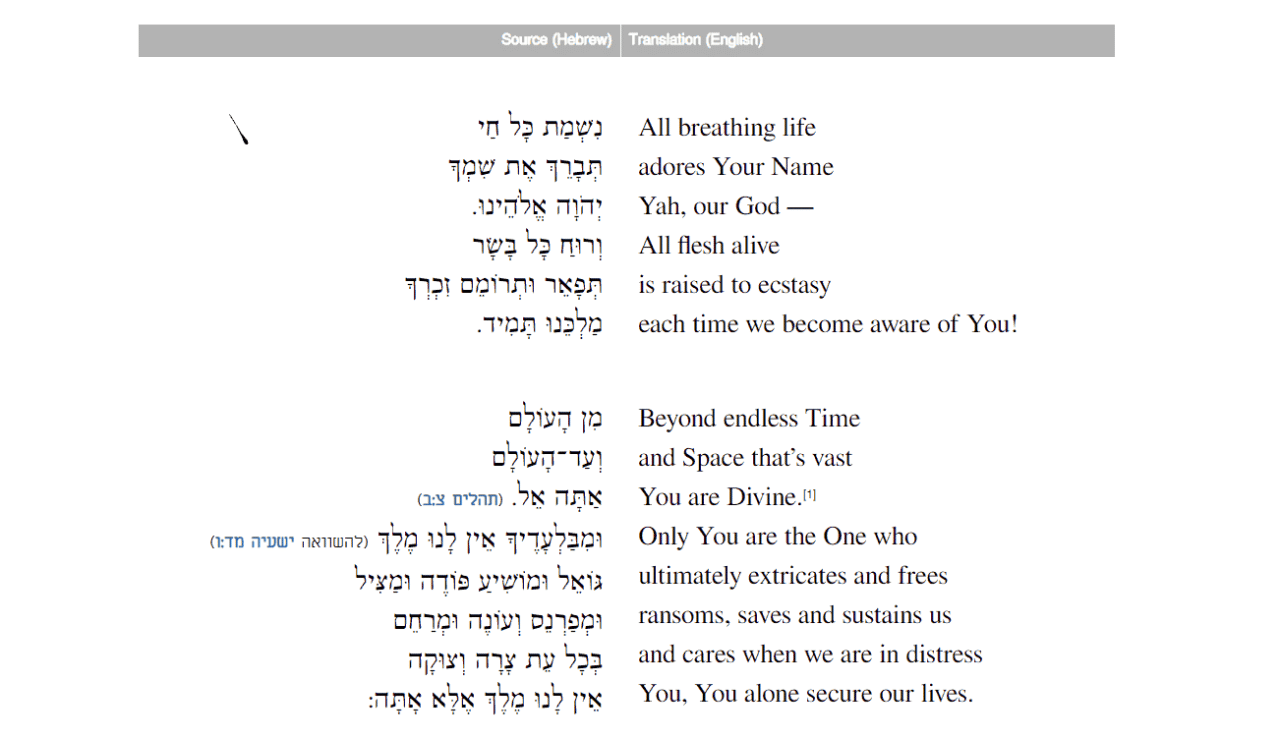Choosing a memorable name is crucial for any freelance business. A strong brand identity, coupled with a well-crafted name, can significantly impact your success. This guide provides a comprehensive approach, from understanding your brand to finalizing your selection, ensuring your business name resonates with your target audience and stands out in a competitive market.
This comprehensive guide walks you through a strategic process, from defining your brand identity to testing potential names and securing your chosen moniker. We’ll cover key aspects like brainstorming, evaluating effectiveness, analyzing your target audience, and ultimately, finalizing your selection. The detailed steps and actionable advice will help you navigate this critical aspect of launching or growing your freelance business.
Understanding Your Brand Identity

A strong freelance brand is more than just a name; it’s the essence of your work and the promise you make to clients. Before diving into catchy names, understanding your brand identity—the core values and characteristics that define you—is crucial. This foundational understanding will guide your naming process, ensuring the name resonates with your target audience and effectively communicates your unique selling proposition.Defining your ideal freelance brand is like crafting a persona for your business.
It involves identifying the key attributes that make your services distinct and appealing. This clarity is vital for selecting a name that reflects your brand values and attracts the right clients.
Key Characteristics of Your Ideal Freelance Brand
Understanding your brand’s core characteristics is essential for crafting a name that accurately reflects your services. These attributes will form the bedrock of your brand identity.
- Expertise and Specialization: Are you a specialist in a particular niche, or do you offer a wide range of services? Identifying your core expertise allows you to highlight it in your brand name. For example, a graphic designer specializing in logo creation would benefit from a name that explicitly communicates this specialization. A general web designer might opt for a name that conveys versatility.
- Target Audience: Knowing your ideal client profile is paramount. Are you targeting small businesses, large corporations, or individual clients? Understanding your target audience helps shape the tone and style of your name. A name designed for startups might differ from one designed for established businesses.
- Brand Personality: This encompasses the emotions and associations your brand evokes. Are you creative, reliable, innovative, or traditional? A name should align with your brand’s personality. A creative designer might choose a name that evokes a sense of artistic flair, while a meticulous editor might choose a name that suggests precision.
- Values and Mission: What are the core principles that guide your work? Are you focused on client satisfaction, sustainability, or ethical practices? A name should subtly communicate these values, fostering trust and connection with your target audience. A business emphasizing sustainable practices might include environmentally conscious elements in their name.
- Unique Selling Proposition (USP): What sets you apart from the competition? Is it your speed, affordability, or innovative approach? This key differentiator should be embedded in your name to attract clients seeking those specific qualities. A fast-turnaround web developer might use a name that highlights speed and efficiency.
Matching Brand Values to Name Ideas
The following table illustrates how different brand values can influence name selection. It links brand values to potential target audiences and provides corresponding name ideas.
| Brand Value | Target Audience | Corresponding Name Ideas |
|---|---|---|
| Creative & Innovative | Design-conscious individuals and small businesses |
|
| Reliable & Experienced | Large corporations and established businesses |
|
| Affordable & Accessible | Startups and small business owners |
|
Brainstorming Name Ideas

Choosing a memorable name for your freelance business is crucial for establishing a strong brand identity and attracting clients. Brainstorming effectively involves exploring various avenues to generate unique and impactful names that reflect your expertise and services. This process should involve creativity, a focus on your target audience, and a meticulous approach to avoid legal conflicts.
Generating Unique Words and Phrases
A strong foundation for naming your business begins with identifying key words and phrases that encapsulate your services or expertise. These should be evocative and relevant to your work. A diverse list provides more options for creative combinations later.
- Strategic Consulting
- Innovative Solutions
- Creative Design
- Digital Marketing
- Web Development
- Project Management
- Financial Analysis
- Content Creation
- Social Media Management
- Graphic Design
Combining Words for Potential Names
Combining your chosen words and phrases in innovative ways can yield powerful and memorable business names. Consider metaphorical links, juxtapositions, and concise phrasing to capture the essence of your services.
- Strategic Solutions
- Innovative Design Studio
- Digital Creative Agency
- Project Management Pro
- Web Development Wizards
Leveraging Thesaurus for Alternatives
Using a thesaurus allows you to explore synonyms and related words, offering alternative names with similar meanings. This process broadens your options and helps you find a name that precisely captures your brand’s essence.
For example, if “innovative” is a key word, exploring synonyms like “revolutionary,” “progressive,” or “cutting-edge” can lead to more nuanced and impactful names.
Utilizing Rhyming Words for Catchiness
Rhyming words can contribute to a catchy and memorable name. However, ensure the rhyme complements the overall brand identity and doesn’t detract from the professionalism of your business.
For instance, if “solutions” is part of your name, consider rhyming options like “solutions-driven” or “results-oriented.”
Ensuring Trademark Availability
A crucial step in the naming process is verifying the availability of your chosen name. Checking for trademark conflicts ensures your business name is unique and avoids potential legal issues down the line. This step protects your brand and prevents future disputes.
Trademark Availability Check Table
| Word/Phrase | Combination Ideas | Rhyming Alternatives | Trademark Check Status |
|---|---|---|---|
| Strategic Solutions | Strategic Solutions Group | Strategic Solutions Pro | Available |
| Innovative Design | Innovative Design Studio | Innovative Designs | Available |
| Digital Marketing | Digital Marketing Hub | Digital Marketing Experts | Pending Review |
| Project Management | Project Management Services | Project Management Pro | Available |
Evaluating Name Effectiveness

Choosing a memorable name for your freelance business is crucial for establishing brand recognition and attracting clients. A well-evaluated name will resonate with your target audience, be easy to recall, and ultimately contribute to your business’s success. Careful consideration of various factors is essential for making the right choice.Evaluating a name’s effectiveness involves more than just liking the sound of it.
It requires a systematic approach that considers memorability, pronounceability, availability, and how well the name aligns with your brand identity. This process will help you identify strong name options that are suitable for your business.
Memorability Criteria
A memorable name is one that sticks in people’s minds. Several criteria contribute to a name’s memorability. These qualities make it easier for potential clients to recall your business and associate it with your services.
- Catchiness: A catchy name is easily grasped and remembered. It should evoke a positive feeling and stand out from the competition. For example, “Skyline Solutions” is more memorable than “Consulting Services LLC.”
- Relevance: The name should clearly reflect the services you offer or the niche you occupy. A name like “Eco-Design Solutions” clearly indicates the focus of the business, making it more memorable to those seeking environmentally conscious design services.
- Uniqueness: Avoid generic names that are easily associated with other businesses. Distinctive names stand out and are more likely to be remembered. A name like “PixelCraft” is more unique than “Web Design.”
- Simplicity: A simple name is easier to recall and repeat. It should not be overly complex or difficult to pronounce. “Swift Solutions” is simpler and more memorable than “Innovative Strategic Solutions.”
- Emotional Connection: A name that evokes a positive emotion or feeling is more likely to be remembered. A name like “Dream Weaver” might resonate with those seeking creative solutions.
Pronounceability Factors
A name that’s easy to spell and pronounce is vital for client interaction and brand recognition. Easy pronunciation fosters clarity and positive associations.
- Phonetic Clarity: The name should be easily articulated and understood without causing confusion or difficulty in pronunciation. Avoid using uncommon or unusual sounds that could be misinterpreted.
- Simplicity of Spelling: The spelling should be straightforward and easily replicated. Avoid complex or unusual spellings that could lead to misspellings or errors.
- Short and Sweet: Shorter names are typically easier to pronounce and remember. While not always possible, prioritizing brevity in the name is a useful approach.
Availability Assessment
Ensuring name availability across various platforms is critical to avoid conflicts and maintain a cohesive online presence.
- Domain Name Check: Verify the availability of the desired domain name (e.g., [yourname].com) to ensure you can establish a professional website.
- Social Media Handle Check: Verify the availability of the desired social media handles (e.g., Instagram, Twitter, Facebook) to maintain a consistent brand identity across platforms.
- Trademark Search: Check if the name is already trademarked to avoid legal issues and maintain your brand’s uniqueness.
Comparing Name Options
Once you have a list of potential names, systematically evaluate them based on the criteria discussed above. This comparison will help you narrow down the options and select the best fit for your business.
| Name Options | Evaluation Criteria (Memorability, Pronounceability, Availability) |
|---|---|
| Innovative Solutions | Good memorability, fair pronounceability, available domain and social media handles. |
| Swift Solutions | High memorability, excellent pronounceability, available domain and social media handles. |
| PixelCraft | High memorability, good pronounceability, available domain and social media handles. |
Analyzing Target Audience
A strong freelance business name effectively connects with your target audience. Understanding their needs, preferences, and expectations is crucial for a name that resonates and builds trust. This analysis goes beyond simply identifying demographics; it delves into the cultural context and how your name can align with their mindset.Thorough audience analysis allows you to craft a name that speaks directly to their values and aspirations.
By understanding their communication style, preferred language, and cultural sensitivities, you can create a name that fosters a positive brand perception. This, in turn, enhances brand recognition and loyalty.
Tailoring the Name to Resonate with Your Target Audience
Understanding your target audience is paramount in crafting a memorable name. Consider their age, profession, interests, and values. A name that resonates with a young, tech-savvy audience might not resonate with a more traditional clientele. For example, a name like “Innovate Solutions” might appeal to a tech-focused audience, while “Classic Craftsmanship” might resonate better with a more established clientele.
The key is to align your name with their perceived needs and desires.
Cultural Nuances in Name Selection
Cultural sensitivity is vital when selecting a business name. A name that’s perfectly acceptable in one culture might be offensive or inappropriate in another. Consider the cultural context of your target audience and ensure your name does not carry unintended negative connotations. For instance, a name that uses a word with a negative meaning in a specific culture could significantly impact brand perception.
Ensuring Name Alignment with Audience Expectations
A well-chosen name reflects the values and expectations of your target audience. Here are three ways to ensure alignment:
- Research and Gather Feedback: Conduct thorough research on your target audience. Use surveys, focus groups, or online forums to gauge their preferences and identify names that resonate with them. Collecting feedback allows you to understand their response to various name options and make informed decisions.
- Use Relevant s: Incorporate s relevant to your services or industry into your name. This helps your target audience easily find and remember your business. This is especially important for online searches and visibility.
- Test the Name with Your Target Audience: Present potential names to your target audience for feedback. Observe their reactions, note their comments, and adjust the name based on their input. This testing phase provides invaluable insights into how the name is perceived.
Example Table of Name Adaptations
The table below illustrates how a business name can be adapted to different target audiences and cultural contexts.
| Target Audience Demographics | Cultural Considerations | Name Adaptations |
|---|---|---|
| Young, urban professionals, tech-savvy | Modern, globalized, short and catchy | “PixelFlow,” “InnovateNow,” “TechPulse” |
| Established business owners, diverse backgrounds | Respectful, inclusive, professional | “GlobalConnections,” “StrategicPartners,” “LegacySolutions” |
| Families, local community | Friendly, approachable, community-focused | “FamilyFirst,” “CommunityCare,” “LocalLanes” |
Testing and Refining Your Choices
Now that you’ve brainstormed and evaluated potential names, it’s crucial to test their reception with a real audience. This crucial step allows you to fine-tune your choices based on genuine feedback, ensuring your chosen name resonates with your target market and accurately reflects your brand identity. A well-tested name increases the likelihood of success in your freelance career.Thorough testing allows you to identify potential pitfalls and refine your name to best communicate your brand message.
By gathering feedback from various groups, you can gain valuable insights into how different audiences perceive your name, and ultimately choose a name that best embodies your brand.
Potential Test Groups for Feedback
Understanding how different segments of your target audience perceive your name options is critical. Consider these five potential test groups to ensure a comprehensive evaluation:
- Current Clients: This group offers valuable feedback as they have firsthand experience with your services and are familiar with your brand. Their input can reveal how well the name aligns with their perception of your work.
- Potential Clients: Target potential clients based on demographics and interests relevant to your services. This allows you to assess how well the name resonates with a wider range of potential customers.
- Industry Professionals: Including peers or experts in your field can provide valuable insights from a professional perspective. Their feedback can highlight industry-specific concerns or expectations related to your name.
- Friends and Family: This group, while not representative of your target market, can offer honest and unbiased feedback, providing a broader range of perspectives.
- Online Focus Group: Utilize online platforms to recruit participants from your target audience for a focus group discussion. This allows for more cost-effective feedback collection.
Methods for Gathering Feedback
Effective feedback collection involves utilizing appropriate methods.
- Surveys: Employ online surveys to collect quantitative data about name preferences. Provide clear instructions and multiple-choice questions with scales to gauge levels of preference.
- Focus Groups: Organize focus groups to gather qualitative data. Facilitate discussions and record participants’ reactions to the name options. Use open-ended questions to uncover deeper insights.
- Interviews: Conduct one-on-one interviews with potential clients to gain in-depth understanding of their reactions to your name choices. Follow up with a series of probing questions to clarify their responses.
Analyzing Feedback and Comparing Results
Once feedback is collected, organize it systematically.
| Name Option | Test Group | Positive Feedback | Negative Feedback | Overall Impression |
|---|---|---|---|---|
| Name Option 1 | Current Clients | Professional, memorable | Slightly generic | Favorable |
| Name Option 1 | Potential Clients | Modern, easy to remember | None | Very Favorable |
| Name Option 1 | Industry Professionals | Strong brand identity | None | Excellent |
| Name Option 2 | Current Clients | Familiar, trusted | Too traditional | Mixed |
| Name Option 2 | Potential Clients | Relatable | Difficult to pronounce | Neutral |
A crucial step is to compare feedback across different groups. Look for consistent themes and patterns. For instance, if a name receives positive feedback from current clients but negative feedback from potential clients, further investigation is necessary. Qualitative data from focus groups can complement quantitative data from surveys to provide a more holistic understanding of audience perception.
Finalizing Your Selection

Choosing the perfect name for your freelance business is a crucial step. After thorough brainstorming and evaluation, the final selection process requires careful consideration. This stage involves making a definitive decision and securing your chosen name legally and across all relevant platforms. A well-considered choice will lay the foundation for your brand’s future success.A comprehensive approach to finalizing your business name involves evaluating the chosen name against various criteria, including its potential for growth and legal implications.
The decision-making process should be rigorous, yet flexible enough to accommodate any unforeseen challenges or opportunities.
Deciding on the Best Name
Several factors contribute to the final decision. First, revisit the initial criteria established during brainstorming and evaluation. Consider how well the name aligns with your brand identity and target audience. Secondly, ensure the name evokes the desired image and message you want to project. Thirdly, assess how easily the name can be remembered and communicated.
Future Growth Potential
Considering future growth potential is paramount. A name that easily adapts to evolving business needs is preferable to one that may restrict your operations or marketing strategies in the future. A name that is concise, memorable, and adaptable to new product lines or services is crucial for long-term success. For example, a name like “TechSolutions” is more versatile than “Widgets Galore” if you plan to expand beyond widgets.
Legal Name Registration
Proper legal registration is essential to establish ownership and avoid conflicts. Consult with a legal professional or use online resources to understand the specific requirements in your jurisdiction. Steps often include trademark searches, business entity registration, and ensuring the name isn’t already in use by another company. Registration processes can vary depending on the specific regulations of your area.
Always consult legal professionals for personalized advice.
Securing Your Business Name
Securing your business name across all relevant platforms is critical for brand protection. This involves registering your domain name (e.g., yourbusinessname.com), establishing social media accounts, and ensuring your chosen name is available across all relevant platforms. This prevents competitors from using similar names and establishes your online presence. A comprehensive strategy includes checking for availability on social media platforms, and ensuring your chosen name isn’t already trademarked.
Final Selection Table
| Name Options | Reasons for Selection |
|---|---|
| Innovative Solutions | Evokes a sense of creativity and problem-solving, aligning with the target audience’s needs. It is easy to remember and pronounce. |
| GlobalReach Consulting | Highlights international potential and expertise, which aligns with the target market’s global perspective. It is descriptive and conveys professionalism. |
| PixelPerfect Designs | Focuses on visual aspects and quality, appealing to the aesthetic and design-conscious customer base. The name is easy to recall and associated with excellence. |
Final Thoughts
In conclusion, crafting a memorable name for your freelance business requires careful consideration of your brand, target audience, and market. This guide has provided a structured approach to help you navigate the process, from brainstorming initial ideas to refining your choices based on feedback and market analysis. By following these steps, you’ll be well-positioned to select a name that reflects your brand, resonates with your target audience, and sets the stage for lasting success.